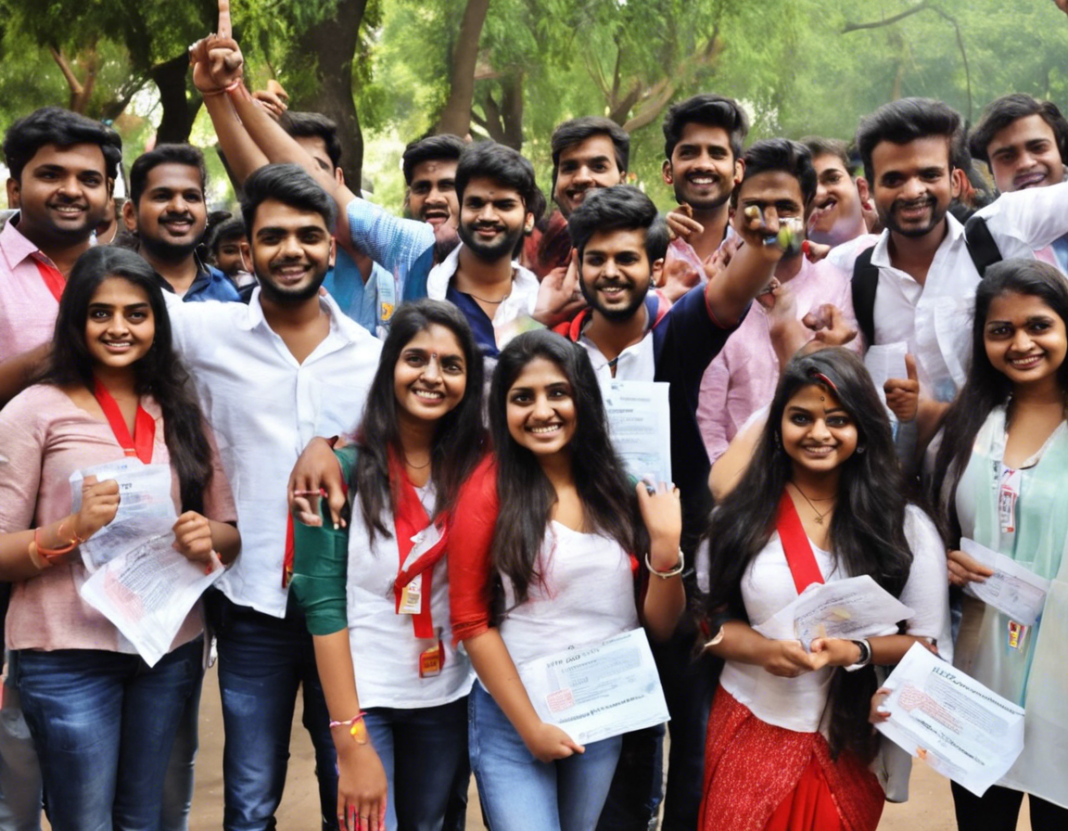As DUSU (Delhi University Students’ Union) election results are announced each year, it often stirs up a lot of interest and curiosity among students, faculty, and political enthusiasts alike. The DUSU elections are a significant event, as they not only have a direct impact on the student body but also serve as a microcosm of the broader political landscape in India. In this article, we will take a closer look at the DUSU election results, analyzing the trends, implications, and factors that influence the outcomes.
Understanding DUSU Elections
The Delhi University Students’ Union elections are held annually to elect representatives for various posts, including the President, Vice President, Secretary, and Joint Secretary. These elections are hotly contested, with different student organizations, predominantly affiliated with major national political parties, vying for control over the union.
Key Players
ABVP (Akhil Bharatiya Vidyarthi Parishad), the student wing of the BJP, has historically been a dominant force in DUSU elections, often winning a substantial number of seats. On the other hand, NSUI (National Students’ Union of India), affiliated with the Congress party, has also been a formidable contender, challenging the ABVP’s dominance in recent years.
Factors Influencing DUSU Election Results
Several factors play a crucial role in determining the outcome of DUSU elections:
1. Political Environment
The overall political climate in the country, especially in the run-up to state or general elections, can significantly impact the DUSU election results. The popularity of the ruling party at the national or state level often reflects on its student wing’s performance in university elections.
2. Campus Issues
Local issues within the university campus, such as infrastructure, academic policies, student welfare, and campus security, often influence students’ voting behavior. Student organizations that effectively address these concerns tend to have an edge in the elections.
3. Campaign Strategies
The campaigning strategies employed by different student organizations also play a pivotal role. From organizing rallies and debates to leveraging social media and on-ground outreach, the effectiveness of a campaign can sway the voters in favor of a particular group.
4. Alliance Building
Often, student organizations form alliances with other groups to consolidate their support base and increase their chances of winning. The dynamics of these alliances and the credibility of the partners involved can impact the election results significantly.
Analysis of Recent DUSU Election Results
In recent years, DUSU election results have showcased interesting trends and shifts in power dynamics:
1. 2021 DUSU Election
In the 2021 DUSU elections, the ABVP secured a landslide victory, winning three out of the four central panel posts. The NSUI managed to secure the Joint Secretary post, but the ABVP maintained its stronghold over the union, reflecting the BJP’s strong campus presence.
2. 2020 DUSU Election
The 2020 DUSU elections saw a tight contest between the ABVP and NSUI, with the former emerging as the winner by a narrow margin. The election results indicated a keenly contested battle, showcasing the NSUI’s resurgence in the university.
Future Outlook and Implications
As we look ahead to future DUSU elections, several implications and trends are worth considering:
1. Evolving Political Dynamics
The evolving political landscape in India, with new parties and ideologies gaining traction, is likely to influence future DUSU election results. Student organizations aligned with these emerging forces could see an uptick in their electoral performance.
2. Shifting Youth Demographics
The aspirations and priorities of today’s youth are changing rapidly, with issues like climate change, social justice, and employment opportunities taking center stage. Student organizations that adapt to these changing dynamics are likely to resonate more with the student electorate.
3. Impact of Social Media
The increasing influence of social media on political campaigns cannot be ignored. Student organizations that effectively leverage digital platforms to engage with students and disseminate their message are expected to have an edge in future DUSU elections.
FAQs (Frequently Asked Questions)
1. When are the DUSU elections usually held?
The DUSU elections are typically held in the month of September each year.
2. Can an independent candidate contest DUSU elections?
Yes, independent candidates can contest DUSU elections for various posts but often face challenges in terms of resources and support.
3. How are the DUSU election results declared?
The DUSU election results are declared through a transparent counting process overseen by university officials.
4. Are DUSU elections only about politics?
While political affiliations play a significant role in DUSU elections, candidates often focus on addressing campus issues and student welfare during their campaigns.
5. What is the significance of DUSU election results?
The DUSU election results are significant as they reflect students’ aspirations, campus dynamics, and broader political trends within the country.
In conclusion, the DUSU election results offer a nuanced understanding of student politics, campus dynamics, and the broader political landscape. As we delve deeper into these outcomes and analyze the trends, it becomes evident that these elections are not just about student unions but also serve as a barometer of the youth’s engagement with politics and social issues in India.
